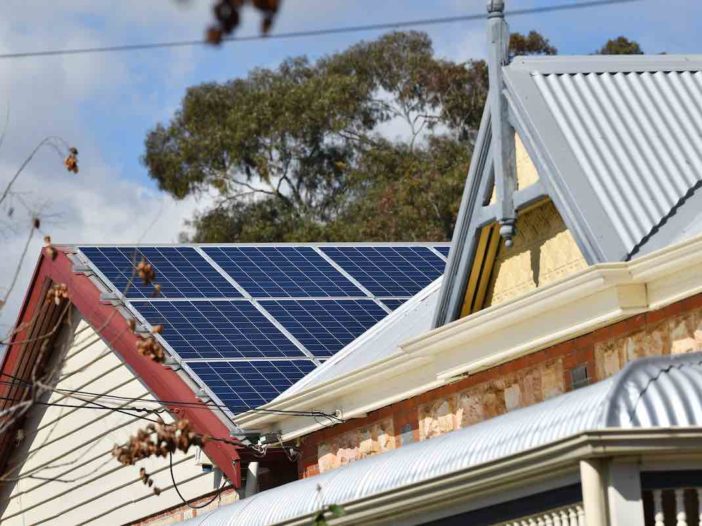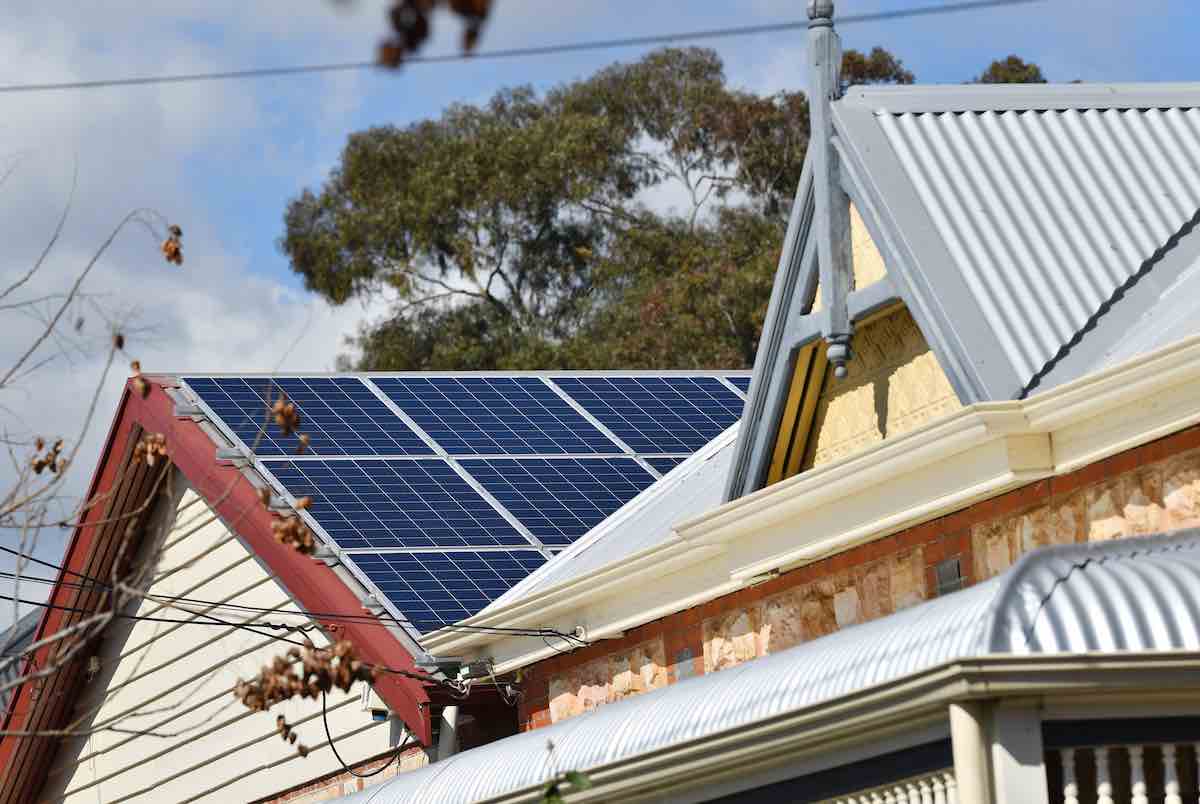
Interest-free loans on solar panels and batteries will be offered by one major bank in a bid to make renewable energy affordable to more households.
Australia’s largest bank will make solar panels and home batteries available through interest-free loans as part of a growing portfolio of green finance offerings.
The Commonwealth Bank will launch the product on Tuesday, offering loans of up to $30,000 for renewable energy technology ordered through partner UPowr.
The bank’s latest green loan comes one month after it announced a deal with Tesla to finance electric cars, and after several of its banking rivals offered customers discounts and incentives to borrow money for environmentally friendly homes and products.
The announcement also comes after a CSIRO report found adding solar panels and switching to an electric vehicle could save households up to $1500 a year.
Commonwealth Bank personal lending general manager Joel Larsen said the latest green loan offering was specifically designed to fund solar panels and batteries as many customers were interested in the technology but unable to meet the up-front cost.
“A lot of people like the idea of solar, they like the idea of batteries, but the idea of making a big initial outlay and waiting a few years for it to pay back isn’t as appealing,” he said.
“By being able to access solar and battery (technology) up-front with an interest-free loan, customers can start enjoying the benefits of power bill savings immediately rather than buying the solar solution but having to wait four or five years before it makes sense financially.”
The new loans will allow Commonwealth Bank customers to apply for a quote on renewable energy products through partner UPowr and fund the products over one to five-year terms through its InstalPay program.
Going all-electric in the home and on the roads could save households about $1500 a year.
The loans would be interest-free, Mr Larsen said, and available for sums up to $30,000.
While the bank had seen “strong demand” for green loans from environmentally conscious customers in the past, he said, this product was expected to have wider appeal.
“Early adopters were focused more on the environmental impacts of energy efficiency and now we’re starting to see that curve change and it become more of a mass (market) issue,” he said.
“Higher power prices are pushing everyday, cost-conscious consumers to start considering these options.”
Green Building Council of Australia chief executive Davina Rooney said loans of this kind could help make “renewable energy available to more Australians”.
Green loans are becoming more common throughout the industry, with banks including Westpac, NAB, Bendigo Bank and Bank Australia now offering a mix of discounted rates and low fees to borrow funds for green homes, renovations and technology.
A CSIRO study, released in August, analysed potential financial benefits of products including electric vehicles, electric appliances, and energy efficient changes.
It found adding solar panels and using an electric vehicle could save households between $1400 and $1500 in annual savings on average, though noted that savings started modestly, at $200 a year, and reached $2250 after a decade.
AAP



